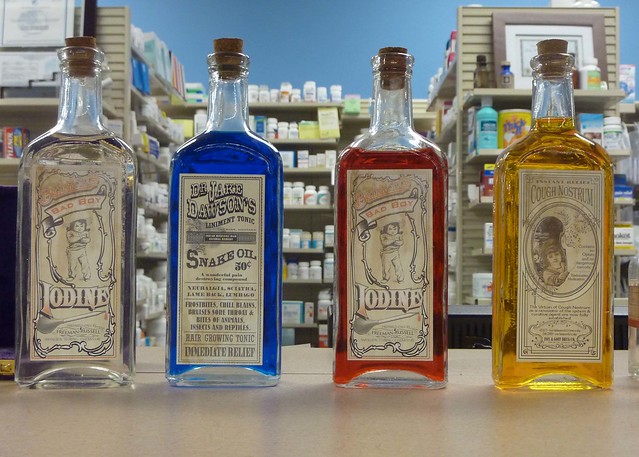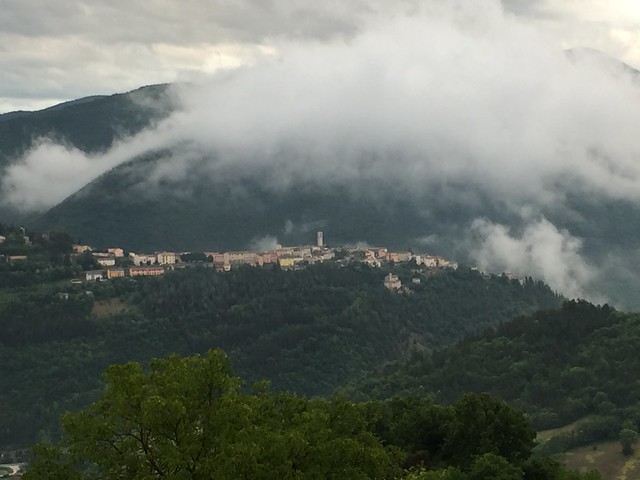The term snake oil is used to refer to a scam, a fraudulent medicine or remedy, or deceptive marketing. It was first appeared in writing in 1858 in the USA. In Georgia, for example, snake oil was sold as a folk remedy for rheumatism and gout, and it was said to be a cure for deafness in parts of Pennsylvania.
Some such remedies contained oil made from the fat of snakes, especially rattlesnakes, but many didn’t. In the early 20th century such products started to be condemned in professional pharmacy journals as they didn’t contain any snake oil at all. As a result the term snake oil became associated with phony remedies and quackery [source].
In French snake oil is known as remède de charlatan (charlatan medicine) or poudre de perlimpinpin (perlimpinpin powder).
The word charlatan (quack (doctor), charlatan), comes from the Italian ciarlatano (charlatan, quack), from ciarlatore (chatterer) and cerretano (hawker, quack). The latter term means literally a “native of Cerreto”, and is the root of this word because the Italian village of Cerreto di Spoleto in Umbria in the province of Perugia was once widely known for its quacks.
Perlimpinpin [pɛʁ.lɛ̃.pɛ̃.pɛ̃] is one of the French names for Rumpelstiltskin, a company that makes children’s clothes, a restaurant in Paris, and probably others things. The origins of the word are uncertain. According to one theory, it’s a combination of prêle (horsetail – Equisetum hyemale) and pimpin (Pandanus montanus – a type of tree from the island of Réunion), two plants that were used as in a herbal medicine in 17th century France [source].


“Rumpelstiltskin powder”? Now that is 😆 hilarious!